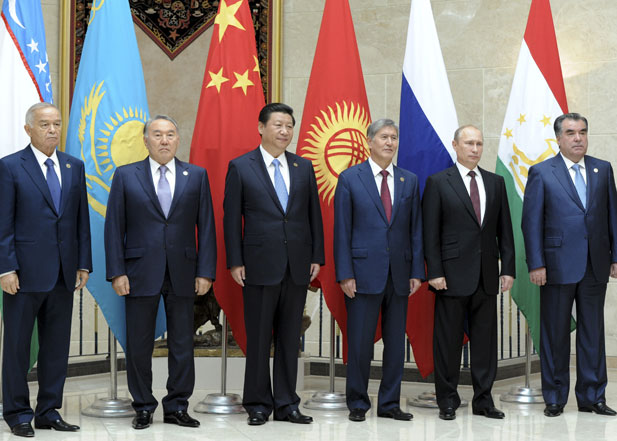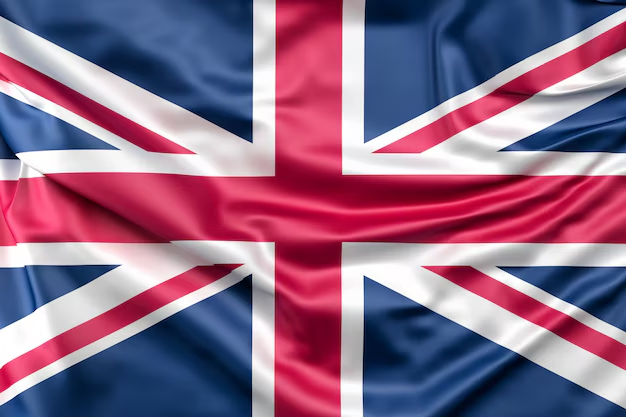
Today’s international relations are characterised by the multipolarity of actors in the international system, with more and more countries influencing politics, security and economics. Eurasia has become a strategic region due to its economic potential and natural resources, which has led these countries to unite under the Shanghai Cooperation Organisation (SCO). Initially formed in 2001 by China, Kazakhstan, Kyrgyzstan, Russia, Uzbekistan and Tajikistan, in 2017 India and Pakistan joined, and in 2021 Iran, as well as Afghanistan, Belarus and Mongolia as observer countries.
There are a number of destabilising factors in the region that prevent from a full economic growth. These factors include border tensions and what the SCO considers to be the three evils – extremism, separatism and terrorism -, transnational issues to which it must jointly seek a solution and which will formulate the organisation in terms of regional security.
From the initial fight against these evils, the organisation’s sphere of action is being extended to other sectors that, despite not posing a direct risk to the internal sovereignty of states, are essential for regional balance. Specifically, the organisation has signed economic and cultural agreements to strengthen ties between members and economic development in order to gain access to their markets. Even so, the security strategy remains paramount in the fight against terrorist threats, particularly from ethnic Uighur claims. In the following, we will take a closer look at the security action of the organisation, which should be interpreted as preventive rather than defensive.
Security threats
Instability in the 1990s in Central Asia, with incursions against regimes in Kyrgyzstan, Tajikistan and Uzbekistan, and internal security concerns in China and Russia, prompted the creation of the organisation with security as a central objective.
Initially, the organisation focused on combating the three evils – terrorism, extremism and separatism – but over time it has expanded to encompass new problems that respond to risks to the maintenance and stability of their regimes. They do not pose a direct threat but do have long-term implications. Among the new areas covered by the organisation are organised crime, cybersecurity and illegal narcotics trafficking, the latter being closely linked to Afghanistan, from where a large number of drugs flow through Central Asia, which in turn serves as a source of funding for terrorist groups (OHCHR, 2011:24).
For the implementation of security policies, as mentioned above, the SCO established a Regional Anti-Terrorism Office (RATS) in charge of compiling information and creating a database that includes the names of the main terrorists, separatists and extremists in the region (Saiz, 2009: p. 314). The agency seeks to harmonise countries’ domestic legislation and share information. It is a valuable element in the fight against transnational terrorism as, since its creation in 2004, RATS has managed to stop 600 potential attacks in the territories of member countries, extradited more than 500 terrorists and identified 42 organisations and 1,100 individuals linked to these activities (OHCHR, 2011), and has also been responsible for pointing out the growing presence of extremists from member countries fighting in conflict zones such as Afghanistan, Pakistan and Syria.
Military exercises are regularly carried out under peacekeeping missions that allow for the coordination of the different armies and their commanders in the fight against terrorism. These exercises are carried out by national armies, as the SCO does not have its own army as it is not a military organisation. They are dominated by Russian and Chinese troops, with Kazakhstan playing a notable role and to a lesser extent Kyrgyzstan and Tajikistan. Uzbekistan does not participate in the exercises (Matveeva, A. and Guiostozzi, A. 2008: pp.14-15). In August 2018, India and Pakistan joined the joint military exercises and this is the first time they have cooperated in this field since independence in 1947 (Haidari, 2019).
Security activities are not exempt from international criticism because of the vagueness of their activity and the secrecy with which their activities are carried out (OHCHR, 2011: p. 48; Alimov, 2019). Criticism is levelled at defining the actors targeted, involving any individual opposed to the regime, the carrying out of blacklists and compulsory extradition without prior investigation – all of this according to article 23 of the Counter-Terrorism Convention (2009). Insurgent movements have been labelled as terrorism, without differentiating between opposition movements, radical Islamists, organised crime and real terrorists (Clarke, 2010: pp. 16-19).
Main challenge: India and Pakistan
The heterogeneous nature of the organisation and the need for consensus in decision-making make it difficult for the organisation to implement its agenda and lose effectiveness. The latest expansion may serve as a catalyst for deepening differences among members and put into question possible enlargements.
The accession of India and Pakistan brings tensions between them into the SCO, with the risk of disrupting the functioning of the organisation. However, it is unlikely that India will be able to use the SCO effectively against Pakistan, with China being its main supporter and relations with Russia improving. (Zeb, 2018) Historically, the SCO has served to resolve border tensions between members, providing an opportunity for the two countries to finalise disputes over the territory of Kashmir. (Grossman, 2017)
Looking at the situation, why admit two nuclear powers that have fought each other?
In Putin’s (2018) words, the SCO serves to assist in “political and diplomatic settlement of conflicts near the external borders of the organisation’s member states”. It can serve as a platform for resolving disputes between its members, reducing tensions. It should not be forgotten that it came into being to resolve border tensions and the fight against the three evils, which severely affects both countries.
Engaging Pakistan in the fight against terrorism, as well as developing cooperation with Central Asia, is beneficial for the country, something in which China shows great interest because, if Pakistan is more stable, its economic growth is conducive to Chinese economic growth (Zeb, 2018).
Conclusion
Since its creation in 2001, the SCO has established itself as a political and ideological alternative in integration processes. The accession of new states signals a geopolitical ambition and a change in the nature of the SCO. It also strengthens the organisation’s global position and boosts its development. However, enlargement to such diverse members in political, economic, religious and cultural terms, and with tensions existing between them, calls into question the organisation’s ability and success in dealing with them. The need for consensus in decision-making only complicates the implementation of common projects as individual interests clash, especially in the area of economic cooperation. The organisation’s evolution will depend on the harmonisation of conflicting interests, either by broadening the scope of action or by sticking to security cooperation. This situation creates a gap between discourse and practice, which is the biggest challenge currently facing the Shanghai Cooperation Organisation.
Iran’s recent accession signals a new stage within the organisation, which, together with stable security cooperation and a necessary expansion of economic cooperation, could turn the SCO into a hegemonic regional actor in the fight against terrorism and achieve regional stability, as well as international recognition from other actors.
Verónica Rodríguez Fariña
Literature
- Alimov, R. (2019): “The Shanghai Cooperation Organisation:its role and place in the development of Eurasia”, Journal of Eurasian Studies 9, pp.114-124.
- Clarke, M. (2010): “Widening the net: China’s anti-terror laws and human rights in the Xinjiang Uyghur autonomous Region”, The International Journal of Human Rights, 14(4), pp. 542-558.
- Grossman, D. (2017). “China will regret India’s entry into de Shanghai Cooperation Organization”, the Diplomat, 24 July. Available at: https://thediplomat.com/2017/07/china-will-regret-indias-entry-into-the-shanghai-cooperation-organization/
- Haidari, A. (2019). “The SCO can de-escalate India-Pakistan Tensions”, The Diplomat, 1 March. Avaialble at: marzo. https://thediplomat.com/2019/03/the-sco-can-de-escalate-india-pakistan-tensions/
- Matveeva, A. and Giustozzi, A. (2008): “The SCO: a regional organisation in the making”, Crisis States Research Centre
- OHCHR (2011): Shanghai Cooperation Organization and Counter-Terrorism Fact Sheet. Available at: https://www2.ohchr.org/english/bodies/hrc/docs/ngos/HRIC_parallel_report_Kazakhstan_Annex1HRC102.pdf
- Saiz Álvarez, J. (2009) “La Organización de Cooperación de Shanghái (OCS): Claves para la creación de un futuro líder mundial”. Revista de Economía Mundial.
- Shanghai Cooperation Organization (2021): The Shanghai Cooperation Organisation. Available at: http://eng.sectsco.org/about_sco/
- Shanghai Cooperation Organization (2009): “Convention on Counter Terrorism”
- Shanghai Cooperation Organization (2001): Declaration on the Establishment of the Shanghai Cooperation Organization
- Shanghai Cooperation Organization (2001): The Shanghai Convention on Combating Terrorism, Separatism and Extremism
- Zeb, R. (2018). “Pakistan in the SCO: challenges and prospects”, The Central Asia-Caucasus Analyst, 8 February. Available at: https://www.cacianalyst.org/publications/analytical-articles/item/13496-pakistan-in-the-sco-challenges-and-prospects.html
By The European Institute for International Law and International Relations.














